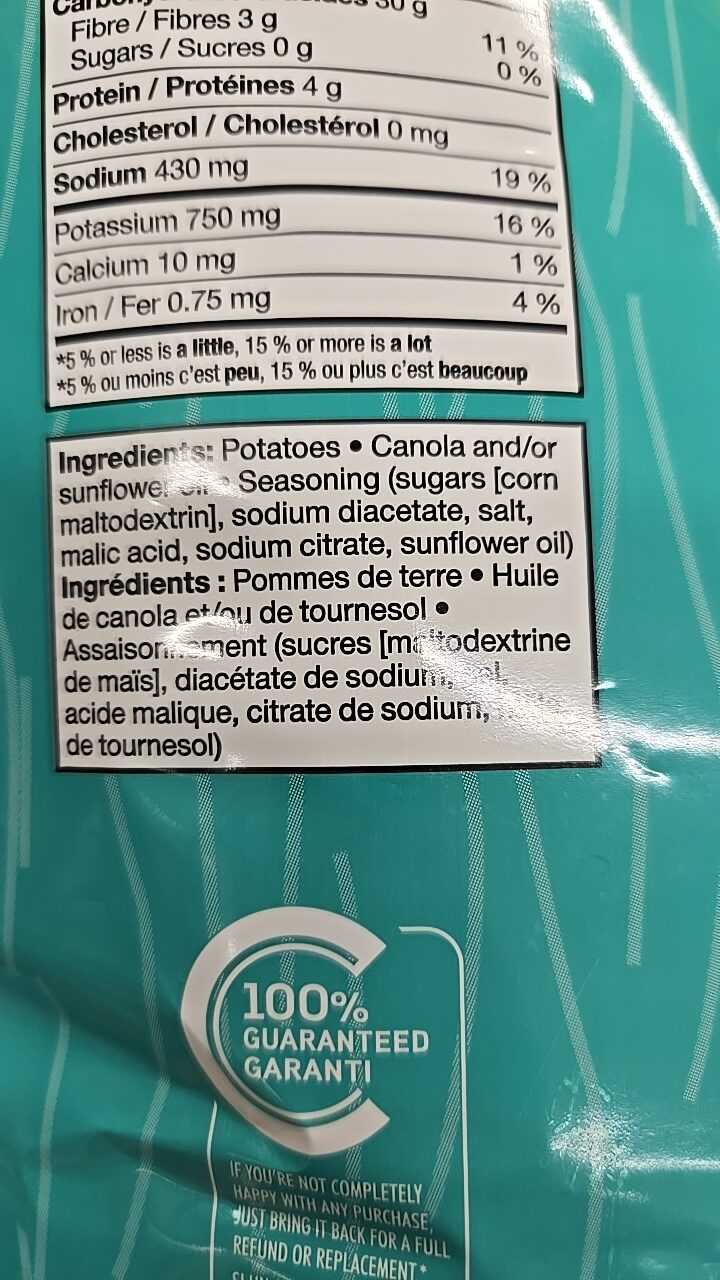
Barcode: 055742572773
potatoes
HALAL
📝 Reason: Almost all the listed ingredients are plant-derived or synthetic and do not appear in the provided Haram ECode list (E120, E124, E354, E999). Ingredients concerning are ‘seasoning’/’assaisonnement’ as their content is unspecified and may contain doubtful or non-Halal components like animal-based flavor enhancers or alcohol extracts. As per Islamic dietary law (Quran 5:3), doubtful ingredients should be avoided. Refer to IFANCA guidance and Halal food additive lists.
🏷️ Category: Chips
📄 Certificates: 100% Guaranteed Garanti, Vegetarisch, Vegan
Ingredients:
Details
Understanding the Halal Status of Potatoes
When it comes to understanding the Halal status of food products, clarity is key. Potatoes, a widely consumed staple food, are primarily made from the natural tuber of the plant. However, the accompanying ingredients and seasonings can introduce complexities regarding their Halal compliance. Here, we explore the ingredient list and E-numbers associated with potatoes and clarify their Halal status.
The Core Ingredient: Potatoes
Potatoes are unequivocally Halal. They are a natural plant-based tuber with no Halal concerns, making them a staple for various diets. No problematic animal products or forbidden elements are associated with pure potatoes.
Analyzing Additional Ingredients
When potatoes are packaged as snacks or included in processed foods, additional ingredients are often integrated. Let’s examine the complete ingredient list:
- Canola and/or Sunflower Oil: Typically Halal unless contaminated during processing. These vegetable oils are generally safe for consumption and do not have Halal concerns.
- Seasoning: This can be a grey area. The term ‘seasoning’ can imply a variety of unidentified ingredients. It’s vital to ensure that no non-Halal flavor enhancers or alcohol extracts are part of the seasoning mix. To be safe, it’s recommended to refer to trustworthy Halal certification sources.
- Sugars: Generally derived from cane or beet sugar, these are Halal unless processed with non-Halal agents, which is usually not the case.
- Corn Maltodextrin: This ingredient is a plant-based carbohydrate often derived from corn and is considered Halal unless processed with non-Halal enzymes, which is rare.
- Sodium Diacetate: A synthetic compound, sodium diacetate is Halal and widely used as a preservative.
- Salt: A mineral that is always Halal.
- Malic Acid: This is either synthetic or derived from fruit and is deemed Halal.
- Sodium Citrate: Generally Halal and can be derived from either citrus fruits or synthesized chemically.
- Sunflower Oil: Like canola oil, sunflower oil is plant-based and Halal.
The Uncertainty of Seasoning
The most significant concern regarding Halal compliance lies within the ‘seasoning’ component. Because seasonings can vary widely, it is crucial to consider reputable Halal guidance. As indicated in the short explanation we provided, it’s advisable for consumers to seek products with clear labeling or Halal certification to avoid ambiguities.
Certification and Assurance
Potatoes marketed as part of processed snacks often come with assurances of being 100% guaranteed Halal and vegetarian or vegan certifications. Always look out for labels that reassure consumers of the Halal status.
Conclusion
The final verdict? Potatoes in their natural form are Halal. However, caution should be exercised when evaluating products that contain additional ingredients, especially seasoning. Always verify with trusted sources or certified organizations to ensure compliance with Islamic dietary laws (Quran 5:3).
This post aims to serve those concerned about the Halal status of potatoes and related snack products. Stay informed, read labels thoroughly, and consult Halal food additive lists for peace of mind while enjoying your meals!
